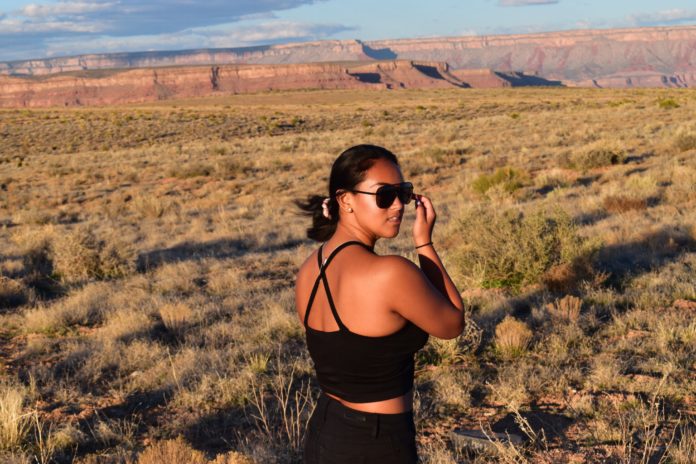Over the last five years, the body positivity and self-love fad has become so ingrained in our culture — #bodypositivity currently has over 4.1 million posts on Instagram, while #bodypositive has over 12 million. While it’s an extremely impactful and powerful movement, there are aspects that have become toxic to the way we feel about our bodies and ourselves.
There’s nothing wrong with preaching love when it comes to our bodies. It’s dangerous when we expect everybody to love everything about their bodies all the time. But body positivity turned from encouraging others to see the positives in themselves to expecting everyone to feel confident 24/7 — which is simply not how the human mind works. In contrast, body acceptance is about learning to accept our bodies in their natural forms — to look at yourself and say, “Okay, I don’t love that, but that’s just fine.” We shouldn’t have to force love on something we don’t love, or expect others to love what they simply don’t.
It’s nearly impossible to scroll through my Explore feed on Instagram without seeing a bikini photo captioned with how much the poster loves their body: rolls, cellulite and all. I don’t doubt that they love their bodies, but social media only shows us a sliver of their lives — the parts that they are happy with. We don’t see the other times where they don’t feel 100 percent confident about their bodies. This can become damaging for others, especially young girls, who consume this content during their vulnerable, formative years.
I used to be obsessed with social media pages that were about body positivity. My feed would be filled with pictures of women’s bodies, with captions saying how beautiful and amazing they felt. Almost all of these posts would end with #loveyourself or #bodypositivity. For a while, these would inspire me and serve as a reminder to love my body. However, I started to realize that I didn’t really relate to these women at all. Sometimes I just didn’t love the way I looked and I wasn’t completely confident. There were days where I really needed to fill my mind with positivity, but there were more and more days where I felt like I needed to know that what I was feeling, the lack of confidence and positivity, was valid. While I would love to say that I am confident about my body every single day, that’s just not realistic. And maybe that’s okay.
It’s much more authentic and inspiring to see the times and moments when people aren’t feeling great about themselves — the vulnerable moments in which people feel like they just don’t look the part, their arms are too big or hips too wide. It’s not negative, it’s not toxic, it’s simply honest. The body acceptance movement strips away the aim for perfection, and teaches us just to accept ourselves.
I remember seeing a post a few months ago of a beautiful woman in a bikini on the beach. She looked strong, confident and happy, but her caption shared her truth. She had struggled with posting the photo because she didn’t love the way she looked in her swimsuit. Reading that post was one of the more authentic moments I had experienced through social media. It was so relieving to see a post like this and made me feel like I wasn’t alone. She so easily could have claimed that she was being body positive, but instead, she chose honesty. It was so refreshing and reminded me that it’s okay to not be fully in love with your body every day.
In a recent interview with Ashley Graham, singer Demi Lovato opened up about her fight with an eating disorder and talked about her road to recovery. She herself is trying to practice body acceptance instead of body positivity and said she does so because she simply doesn’t love her body every single moment. She doesn’t feel the need to lie to herself about loving her body.
During the interview, Lovato said, “I would love to be in a place where I can say I’m super confident in my body, but the reality is, I’m not.” In an Instagram post from last September, she shared a photo of herself in a bikini with cellulite on full display. In the caption, she admits that she’s “not stoked” about the way she looks in the photo, but she’s learning to accept that.
I’ve begun trying to practice self-acceptance, and it’s been liberating. When I look in the mirror and see something I don’t like about my body, instead of trying to force myself to love it, I accept that it might not look or be exactly the way I want it to. After spending so long in the world of body positivity, it feels like a weight lifted off my shoulders to finally admit that I don’t always love my body or feel so positively about it. Let’s start championing an age of self-acceptance and accept ourselves just as we are — insecurities and all.
Aime Fukada is a junior sociology major. She can be reached at afukada@oxy.edu.
![]()




































